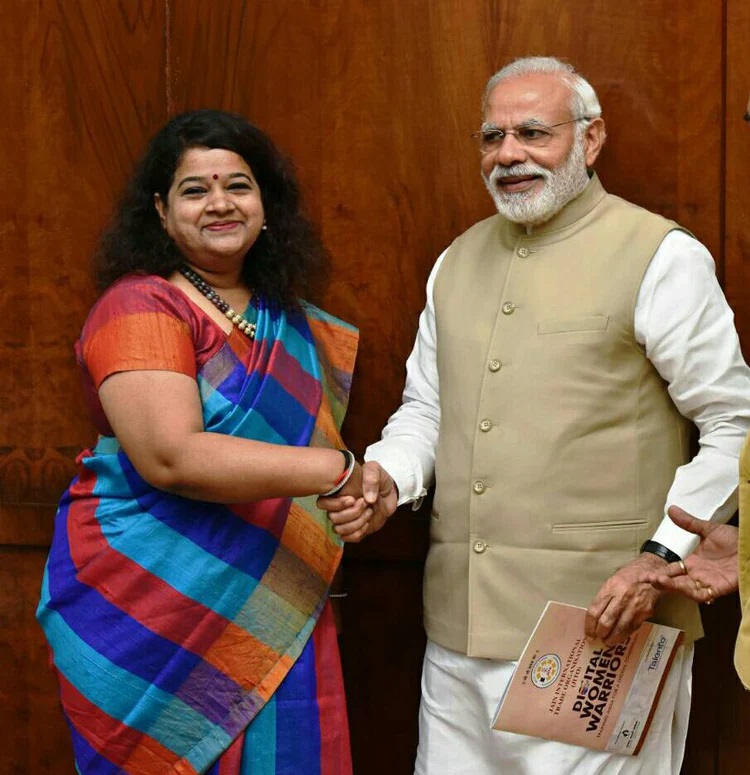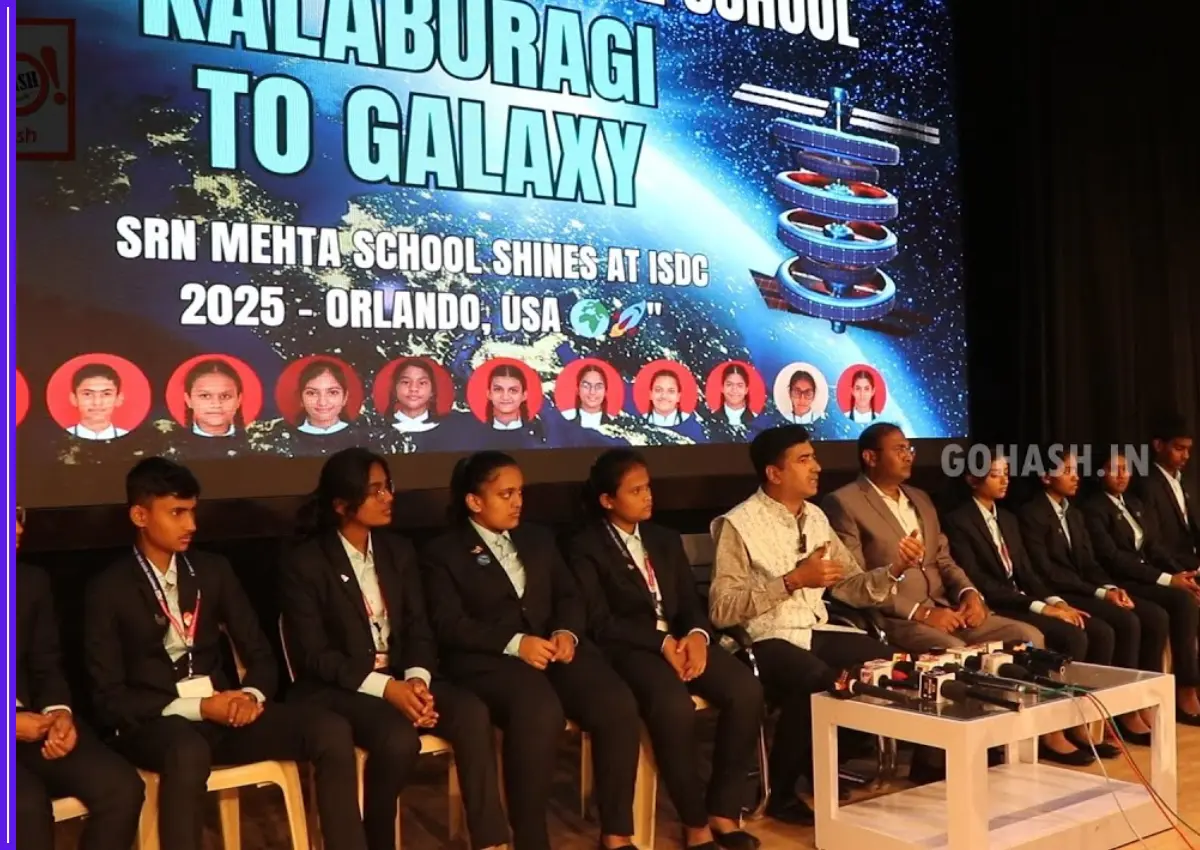The path of Canadian-born Sharmila Jain Oswal from resigning her job to surveying farmers, understanding their issues, founding an NGO and millet startup to aid farmers, to being recognized and praised by India’s Prime Minister Modi in his ‘Mann ki Baat’ program, is extremely inspirational.
Concerningly more farmer suicides occurred between 2004 and 2006, especially in Maharashtra. Data from the NCRB show that 17,060 farmers committed suicide in 2006, 1,427 of whom were from Maharashtra. And Vidarbha, the cotton-growing region of the state, saw 1,065 of these fatalities.
Sharmila Jain Oswal, who was at the time living in Canada, was extremely concerned by this.
Life-Altering Decision
“Even though I was making good money, I wasn’t living in my own country. I desired to go back and help the farmers, ensuring the food security of my country. I had witnessed the plight of farmers and was familiar with their issues because I had grown up in a village. Unfortunately, a lot of government programs didn’t reach them, which resulted in growing debt and subpar crops, the 52-year-old says to The Better India.
Sharmila made the decision to leave her position and go back to Pune in 2008. She then started a two-year survey across Rajasthan, Gujarat, and Maharashtra to learn more about the issues that farmers were actually facing.
The Green Energy Foundation
She soon after founded the Green Energy Foundation, an NGO that offers farming communities with alternatives. The foundation aims to empower women in agriculture while restoring water resources and applying smart farming practices.
In Poynad, a tiny rural community close to Alibaug, Maharashtra, where millets were the main grains used, Sharmila’s father operated a flour mill in the late 1970s. The young girl experienced the difficult life of farmers and their families while growing up there.
She claims her father taught her two crucial things. Before she was even aware of the term “corporate social responsibility,” she learned two things: one, the significance of millets, and two, the idea of CSR.
“The majority of the students at the Marathi-only school I attended experienced a variety of difficulties. Their dads were farmers who frequently lacked a reliable source of income. The girls weren’t allowed access to further education and were married off at a young age. The majority of the ladies in my traditional Rajasthani family also had to deal with issues like being required to wear ghunghat, she continues.
From Lawyer to Activism
She made the decision to become a lawyer after learning about harassment and domestic abuse from classmates and relatives and from people she knew personally. In contrast to my mother, sisters, and sisters-in-law, I desired a different lifestyle. I have seen members of my close family suffer domestic abuse. Girls in my school were not allowed to go to school and were married off young. I battled for my schooling as a result, she says.
Due to the fact that her father and, later, her husband prioritised her education, Sharmila today views this as a blessing. But she was strongly impacted by the struggles her farming community endured as she was growing up, including poor crops and mounting debt.
“I saw firsthand the struggles a farmer and his family face when their crop falters or when it doesn’t rain. The water crisis was only getting worse, so I wanted to work toward finding solutions, she continued.
After getting married, she was motivated by these difficulties to pursue a master’s degree in environmental and agricultural law in England. She practised from 1997 to 1999 in the UK before relocating to Canada, where she remained active until 2007. She then made her way back to her native country in response to the problems Indian farmers were having.
A vision for sustainability
With the aid of a Rs 10 lakh grant from NABARD, Sharmila launched her first sustainable water management initiative in Buchkewadi, Maharashtra, in 2010 after returning to Pune and forming the NGO.
A water shortage in the area was making farming more and more challenging.
“One little dam served as the sole source of water for the village, which is home to about 40 farmers. We developed a technique to optimise water use and improve the village’s water supply. We assessed the soil and water in great detail and developed a model for fair water distribution. The lawyer continues, “We also assisted the locals in controlling water use so that they would have access to water even in the heat.
Sharmila kept up her efforts in Gujarat, Rajasthan, and Maharashtra. She assisted farmers in Dungarpur, Rajasthan, transition from growing just one crop—corn—to growing several.
Maize is one crop that requires a lot of water. So, through a collaboration with ITC’s e-Choupal, we assisted the tribal farmers in Dungarpur by demonstrating to them how to grow crops like moong (green gram) on their farms while using less water. In case one crop fails, the farmers will always have a backup. They also have access to the ITC market as a result of the process. Additionally, we helped farmers produce millets, which use less water, she continues.
A farmer from Dungarpur named Dipti claims that they have profited from this program and that they are now growing veggies as well. “Before, if our crop failed, my husband would have to travel to other cities in search of employment. We can now maintain ourselves properly since we are cultivating veggies and lentils. Because we grow so many different crops, we can survive even with less water, she says.
According to Sharmila, they have assisted over 1.5 lakh farmers in five states over the past 20 years through water management programs, millet and vegetable farming, and capacity-building initiatives, which has resulted in a consistent income for them.
Millet Magic
This social activist encouraged farmers to plant this superfood in arid locations before millet became trendy. “Millets are carbon-neutral, eco-friendly, and climate resilient. They are sustainable since they just need a small amount of water, she claims.
She has taught farmers how to grow millets like ragi, jowar, proso millet, and pearl millet as well as vegetables, even uncommon ones like zucchini, to help them diversify their crops and save water.
Shubham, Sharmila’s son, was at home when the pandemic struck the nation after earning his bachelor’s in political science from Ashoka University. Their firm, “Gud Mom,” was inspired by a discussion about millets and the lack of nutritious food options.
“While I was attending the university, I observed the majority of my friends eating junk food. We also noticed a lot of children who had lifestyle diseases. Shubham Oswal: “We started a firm based on a farm-to-fork approach to offer millet grains and nutritious millet-based snacks to help address this and also give a solid market for farmers.
“We want to create a thriving ecology. These days, kids eat too much junk food, which is bad for them. Millets have been converted into a range of tasty items with diverse flavours and seasonings that the younger generation appreciates. We want to strengthen the nation’s defences, he continues.
The firm now employs more than 5,000 millet farmers nationwide and generates annual revenues of over Rs 16 crore.
Awards and Acknowledgement
The Indian Institute of Millet Research awarded “Gud Mom” the “Poshak Anaj Award 2022” and “Best Startup in Organic Farming 2021” respectively. In his “Mann ki Baat” broadcast, Prime Minister Narendra Modi honoured Sharmila for her efforts to promote millet farming.
Final Thoughts
In conclusion, Sharmila Jain Oswal’s inspiring path from having a prosperous profession abroad to being a devoted supporter of Indian farmers and sustainable agriculture should serve as an example to everyone. Her devotion, vision, and influence in the agriculture sector serve as an example of the positive change that people can make when motivated by a strong sense of purpose and loyalty to their country.






